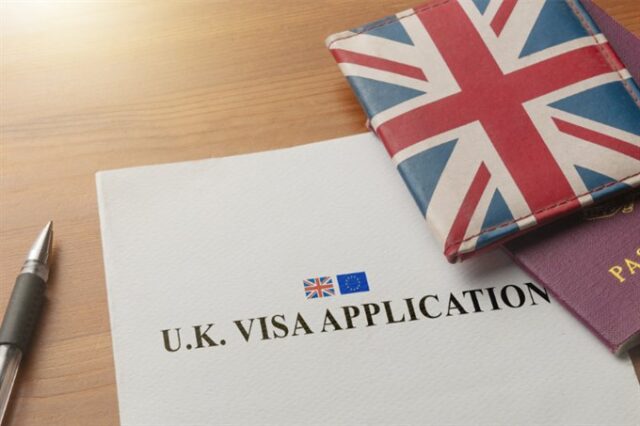
In an age of rapid globalization and interconnected economies, the movement of talent across borders has become an essential driver of economic growth and innovation. Countries that embrace international talent effectively position themselves as hubs of expertise and creativity.
The United Kingdom, with its rich history, thriving economy, and diverse industries, has recognized the importance of attracting global talent to maintain its competitive edge. To facilitate this, the UK has established the Sponsor Licence Program as a strategic mechanism for unlocking global talent and fostering economic development.
In this comprehensive exploration, we delve into the intricacies of the UK Sponsor Licence Program, its underlying dynamics, application process, benefits, challenges, and its profound impact on the UK’s labor market and economy.
Understanding the UK Sponsor Licence Program

At its core, the UK sponsorship licence program is a cornerstone of the country’s Points-Based Immigration System. This system was meticulously designed to address the needs of both the UK labor market and international workforce.
The program offers UK-based organizations the opportunity to sponsor and employ skilled non-UK workers to fill specialized roles that cannot be readily met by the domestic workforce. As a result, the Sponsor Licence Program plays a pivotal role in supporting business growth, driving innovation, and maintaining the UK’s position as a global economic powerhouse.
Significance of the Program
The UK Sponsor Licence Program’s importance cannot be overstated, as it contributes to various facets of the UK’s economic landscape:
• Access to Specialized Skills: In a rapidly evolving global market, businesses are increasingly seeking highly specialized skills and expertise. The program enables organizations to tap into a diverse global talent pool, ensuring that they have access to the expertise required to stay competitive in their respective industries.
• Filling Skills Gaps: Certain industries and sectors face a scarcity of skilled workers due to technological advancements or evolving job requirements. The Sponsor Licence Program enables businesses to bridge these gaps by recruiting international talent with the precise skills necessary to thrive in these areas.
• Enhancing Innovation: Diverse teams fuel innovation. By bringing together individuals from various cultural backgrounds and experiences, organizations gain fresh perspectives and novel ideas that drive creativity and propel innovation.
• Supporting Economic Growth: The infusion of international talent not only bolsters individual businesses but also contributes to the broader economy. Foreign workers pay taxes, consume goods and services, and contribute to the local economy, thereby stimulating economic growth.
The Application Process

Acquiring a UK Sponsor Licence is a multifaceted endeavor that involves a series of well-defined steps:
• Eligibility Assessment: Organizations must evaluate their eligibility based on various factors, including their legal status, financial stability, and the compelling need for non-UK workers to fill specific roles.
• Online Application: The application process is initiated through the Sponsorship Management System, an online platform established by the Home Office. This platform serves as the conduit for providing extensive information about the organization, its operations, and the roles intended for sponsorship.
• Document Submission: Substantiating documents, such as financial statements and business plans, are submitted alongside the application to support the organization’s claims and eligibility.
• Resident Labour Market Test: In certain instances, organizations are mandated to undertake a Resident Labour Market Test. This entails advertising the vacant position to the local workforce before extending the offer to a non-UK candidate.
• Certificate of Sponsorship (CoS) Issuance: Upon approval, the organization receives a Certificate of Sponsorship (CoS), a pivotal document that outlines key details about the sponsored role.
• Ongoing Compliance: Throughout the sponsorship period, organizations must adhere to strict compliance standards, maintaining accurate records and promptly notifying the authorities of any changes in employment status.
Benefits and Challenges

Benefits
- Access to Global Talent: The primary advantage of the Sponsor Licence Program is the opportunity to access a diverse pool of global talent, enriching the organization with a wealth of expertise and experience.
- Competitive Advantage: Companies equipped with the necessary skills to excel are better poised to remain competitive in an ever-changing business landscape.
- Cultural Enrichment: A diverse workforce contributes to a rich cultural tapestry, fostering inclusivity, understanding, and collaboration within an organization.
Challenges
- Complex Application Process: The application process demands meticulous attention to detail and adherence to specific guidelines, which can be challenging for organizations new to the process.
- Compliance Obligations: Organizations must remain vigilant about evolving immigration regulations and maintain meticulous records to ensure continued compliance.
- Labour Market Test Delays: The Resident Labour Market Test, while crucial, can lead to delays in the recruitment process, potentially impacting the organization’s operations.
Impact on the UK Labor Market and Economy

The ramifications of the UK Sponsor Licence Program reverberate extensively, casting an influence that extends well beyond the boundaries of individual organizations:
• Diverse Workforce Dynamics: As international talent seamlessly assimilates into the fabric of the local workforce, workplaces undergo a profound transformation, cultivating an environment characterized by diversity. This, in turn, nurtures a heightened sense of cultural understanding and sparks collaborative synergy among employees from varying backgrounds.
• Skills Transfer: The influx of non-UK workers brings forth an abundance of experience and expertise, ripe for dissemination among domestic counterparts. This catalyzes a vibrant exchange of skills, engendering a mutually beneficial dynamic where local professionals acquire new proficiencies while contributing their own insights.
• Innovation and Economic Growth: The infusion of international perspectives and innovative methodologies ushers in a renaissance within the local business landscape. This metamorphosis ushers in a newfound era of economic growth, underpinned by novel ideas, inventive solutions, and the ability to remain agile in the face of dynamic market forces.
• Industry Competitiveness: Industries grappling with the challenge of skills shortages find a reservoir of resilience through the avenue of the UK Sponsor Licence Program. By seamlessly accessing talent endowed with the exact expertise they require, these industries erect a bulwark of competitiveness. This, in turn, empowers them to not only withstand the evolving tides of technological transformation but also to outpace contemporaries, all while sustaining the momentum of progress.
Conclusion

The UK Sponsor Licence Program is not merely a bureaucratic process; it is a powerful tool that facilitates the flow of global talent, thereby fortifying the UK’s labor market and economy. By enabling organizations to tap into a global talent pool, the program supports business growth, enhances competitiveness, and stimulates innovation.
While the application process and compliance requirements may pose challenges, the benefits are profound. The program’s impact on fostering a diverse and skilled workforce ripples through industries, fostering creativity, understanding, and economic vitality.
As the world continues to interconnect, the UK’s commitment to unlocking global talent through the Sponsor Licence Program ensures that it remains at the forefront of innovation, leadership, and economic growth on the global stage.












